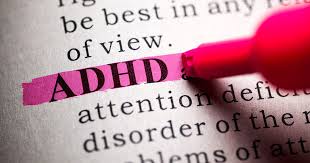ADHD, also known as attention-deficit/hyperactivity disorder, is a neurological ailment that is considered serious and typically affects the brain and central nervous system. Inattentiveness, impulsivity, and hyperactivity are frequently linked to ADHD, and these traits can make it difficult for a person to drive safely. Traffic accidents involving drivers with ADHD are more common, which may suggest that treating ADHD symptoms is necessary in order to drive safely. This could entail counseling, medicine, and useful coping mechanisms.
Recognizing ADHD
ADHD can affect a person's concentration, which is a skill that's often necessary for driving. Generally speaking, impulsivity, hyperactivity, and inattention are the main symptoms of ADHD. This disorder's symptoms can last throughout maturity, but they are typically first observed in childhood.
Concomitant experiences with anxiety, depression, and substance abuse disorders are common in people with ADHD. The stigma and misunderstanding surrounding ADHD can lead to low self-esteem in persons who have the disorder.
Among the signs of ADHD are the following:
inability to focus inattention inability to follow directions
Incoherence
unable to follow a routine or remember appointments
Having trouble meeting deadlines
twitching
High-risk and impulsive actions
Anxiety
Insufficient sleep
co-occurrence with other illnesses, like sadness and anxiety
Does driving impact someone with ADHD?
For many of us, driving may be a significant activity and a serious obligation that calls for extreme caution and concentration. ADHD can negatively affect a person's ability to focus and drive safely, hence there may be a connection between ADHD and a higher chance of accident when driving.
ADHD drivers may be more likely to get into car accidents, obtain penalties for driving while distracted, and take risks when operating a vehicle. People who have ADHD might try multitasking more frequently, such using a phone while driving. Furthermore, drivers with ADHD may be more likely to speed or abuse drugs that might make it difficult to operate a car safely. This may cause mishaps that cause harm or even death. ADHD sufferers can also be more prone to drive without a license.
A 2015 study that compared the driving abilities of people with ADHD and people without the disorder found that drivers with ADHD typically performed lower on tests of driving skills. For those with ADHD, it can be essential to comprehend how their symptoms affect driving in order to adopt safer driving practices.
Is driving when having ADHD safe?
Over time, drivers with ADHD can develop their driving abilities. It is possible for drivers with ADHD to drive safely, despite the increased danger that they may experience when operating a motor vehicle. It can be vital for all drivers to acquire effective driving abilities because it can lead to financial difficulties and other unfavorable events, such as traffic citations and auto accidents, when driving poorly or while distracted. Medication recommended by a doctor could be an option to consider for individuals with ADHD, as it can help with concentration when driving. This may be one of the main reasons people with ADHD should frequently seek therapy.
Tips for safer driving with ADHD
For people with this disease, ADHD medication may be one way to aid with focus and driving abilities, but other approaches might be useful as well.
Here are some suggestions for safer driving:
Drive on quiet roads or other less hectic places with less distractions.
To hone your driving abilities, use a simulator.
Have a supportive passenger as you drive.
Cut down on distractions like mobile phones.
In order to stay involved when driving, think about operating a car with a manual gearbox.
How counseling might be beneficial
Whether or not they drive, therapy can be an invaluable tool for those with ADHD. Individuals can recognize and manage symptoms that may affect their ability to drive and other aspects of their daily lives by seeking therapy from a competent practitioner.
Furthermore, anxiety and ADHD frequently coexist, and many people with ADHD may have anxiety when driving. Therapists can provide useful coping methods to help you manage and reduce symptoms of anxiety. While many people find that in-person treatment is a useful option, others with ADHD who find it difficult to manage their schedules and appointments may find that internet therapy provides a means of connecting with a qualified medical expert. According to research, internet therapy can be just as successful in treating a variety of mental health conditions, including ADHD, as in-person therapy. Adults with attention-deficit/hyperactivity disorder may benefit from online therapy in terms of improved social function and attention deficit, according to a 2022 systematic review and meta-analysis.





Comments